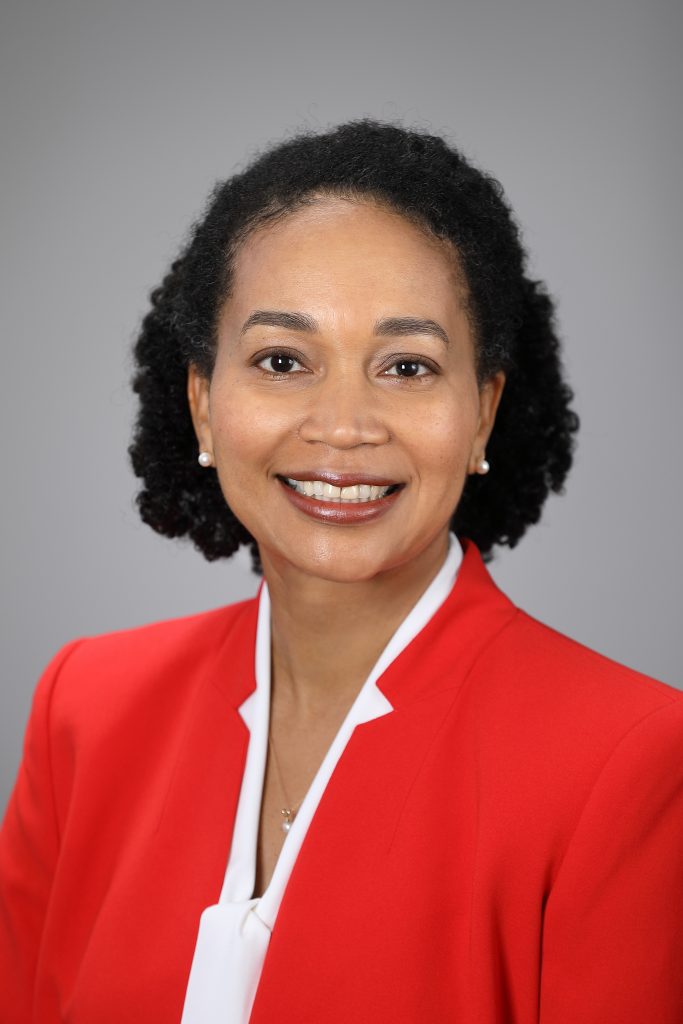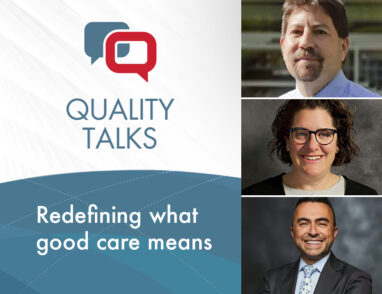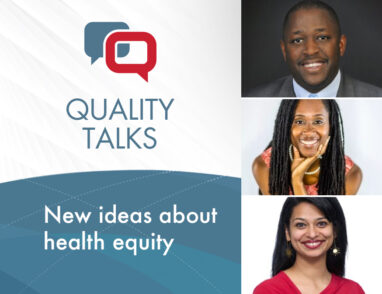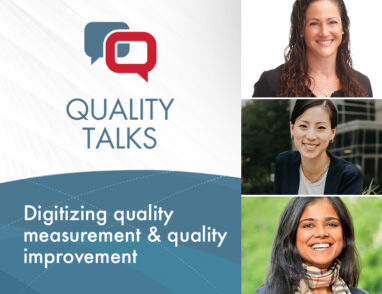Meet the Quality Talks Speaker: PCORI’s Nakela Cook, MD
April 2, 2021 · Matt Brock
NCQA visited (remotely) with Nakela L. Cook, MD, MPH, last week. She is one of ten informative and inspiring speakers in the 2021 Quality Talks lineup. Get your virtual seat fast. Before they are all gone.
Join us April 21.
Register now.
Nakela Cook is a cardiologist and health services researcher with a distinguished career leading key scientific initiatives engaging patients, clinicians and other health care stakeholders at one of the nation’s largest public health research funders.
Throughout her career, Cook has worked to enhance diversity and equity in research and care delivery. She’s led multiple efforts to reduce disparities in health access and outcomes. She’s earned numerous awards for her clinical teaching work, mentorship and leadership of complex scientific initiatives and programs.
Q: Tell me about yourself.
Dr. Cook: I’m Nakela Cook, Executive Director at the Patient-Centered Outcomes ResearchInstitute (PCORI), a cardiologist, and health services researcher. I’m someone that’s very passionate about issues of differential health outcomes, health disparities, and achieving health equity.
I’ve been at PCORI now for about a year and prior to that was, at the National Heart, Lung, and Blood Institute of the National Institutes of Health, where I had the opportunity to work on projects in the office of the director that had patient and stakeholder engagement for major complex initiatives there. I am excited to have brought that experience with me to PCORI where I really have an opportunity to work on things that I really believe in, in terms of patient centeredness in research and health care and bringing all relevant stakeholders to the table to help make informed healthcare decisions.
Q: Equity is certainly a hot topic. I think last summer and the pandemic all laid bare just how bad it is. Do you feel like you’ve been ahead of this? It’s about time everyone else catches up?

Dr. Cook: I would say that one of the major reasons I was motivated to go to medical school and even pursue a career in research was because I grew up in a predominantly black town in Alabama where I witnessed a lot of what are described as health disparities today. But that was prior to those sorts of terms really being understood and even coined at that time. I had a real passion to pursue a career that would provide an opportunity for me to make a difference in that space.
In some ways, it does feel like this has been a lifelong pursuit. The attention from COVID-19 and the just horrible outcomes that we’re seeing in this pandemic and the disparities in those outcomes, as well as really the movement in terms of understanding the issues of systemic and structural racism that came to the fore last year, have brought two crises together. If we don’t take the opportunity to learn from what’s happening in our environment and double down our efforts to really address the issues of health disparities in this country, then we would not have taken the opportunity of a lifetime to transform health care and the health for the people that really deserve it in this country.
Q: Is that because everything’s up in the air anyway, and makes it easier to make changes? Is that what we’re looking at? A crisis that actually is an opportunity.
Dr. Cook: This crisis is certainly an opportunity. And I really say crises because I think we have dual crises here of both dealing with a pandemic and the disparities within that pandemic, as well as addressing the issues of systemic and structural racism in this country. And they’re both affecting our health and the public health of individuals in the nation. It provides an opportunity because we’re learning.
We are witnessing things that we hadn’t before, and we’re seeing people step up to the plate differently than in the past. Research is accelerating, we’re moving data and capturing information from data infrastructure and data systems to understand the variations in care and differential outcomes, what’s working and not working. Different sectors are coming together, collaborating, talking, and thinking about opportunities in ways that really hadn’t existed before. And there are a lot of natural experiments happening all around us. We’re learning from those natural experiments.
Hopefully, we can take these learnings to the bank and think about how they can work for us in terms of transforming health and health care for the long run. So that’s what I think is the opportunity in this crisis or in these crises–to learn from what’s happening all around us to really make a difference and transform our opportunities in the future.
Q: So, if one is late to the equity issue, what is it that people need to know now?
Dr. Cook: I think even if you haven’t recognized everything that’s been happening all around us and the real opportunities in this crisis, it’s really important that you know that it’s not too late. That’s one of the things we’ve learned at PCORI in terms of thinking about patient-centeredness in research. As it relates to engagement and opportunities for engagement in research, it’s never too late to begin.
While we always would like to start early, be prepared, absorb everything that’s happening all around us, sometimes that just doesn’t happen. And if you’re waking up to the realities of what’s going on today, get involved, be participatory in your health, be participatory in research because there still is an opportunity that your contributions can help us think about how we prevent, treat, manage, diagnose you, your family members and others that will come behind you.
And so, there’s really an opportunity to make a difference still.








